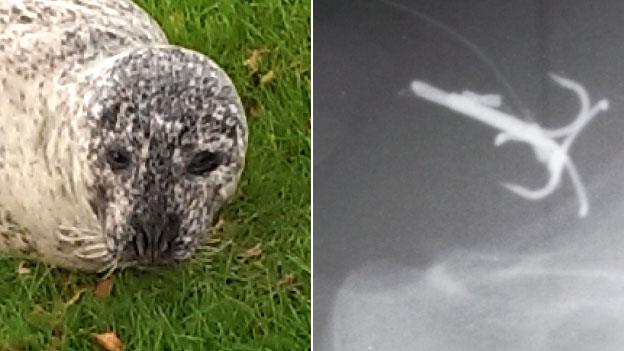Horsey seal injured by plastic ring set for release
- Published
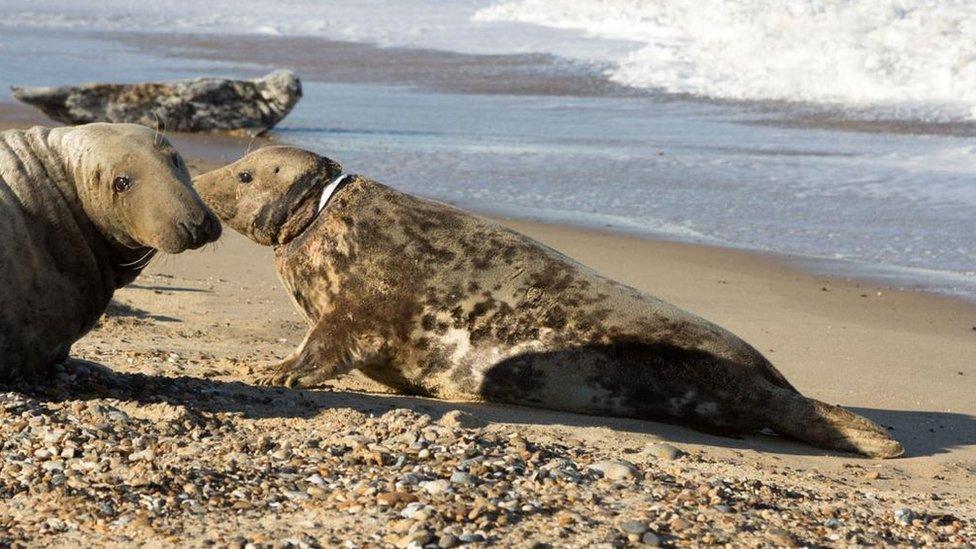
The seal was nick-named "Mrs Vicar" because the white ring around her neck resembled a priest's dog collar
A seal left with deep injuries after having had a white plastic ring stuck around its neck for two and half years could soon be returned to the sea.
"Mrs Vicar" was finally captured on Horsey Beach, near Great Yarmouth, in Norfolk, on 4 April.
After about 10 weeks of antibiotics, pain relief and care at the RSPCA's East Winch wildlife centre she is now swimming in a pool and eating well.
The centre said it was "just a matter of time" before she could be released.
The adult grey seal had been spotted with the ring around her neck, but she kept evading capture.
As she grew, the rigid ring became more embedded leaving her with an infected wound that was 7cm (2.8in) deep when she was taken to East Winch.
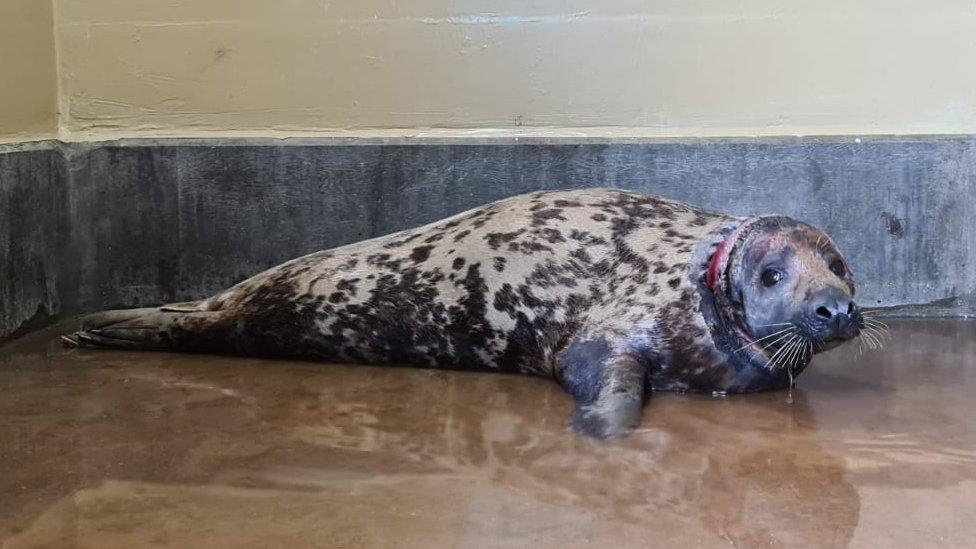
The seal is at the RSPCA East Winch wildlife centre which specialises in care for injured seals
Vets removed the ring, which was described by Peter Ansell, chairman of the Friends of Horsey Seals group, as a "type of flange, possibly used in large scale pipework".
Managers at the hospital were uncertain whether she would pull through, but now say she has progressed well.
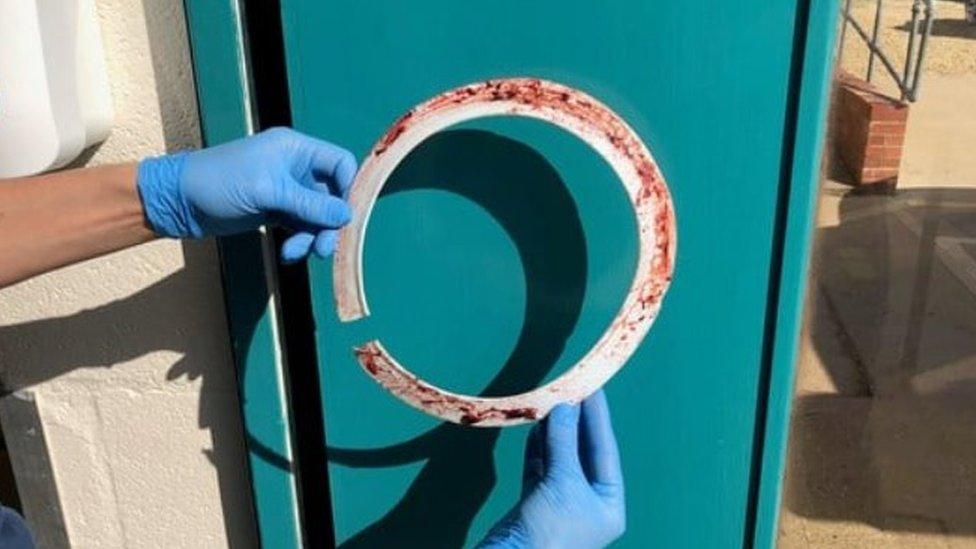
vets carefully removed the plastic ring from the seal's neck when it was brought in, in April
"Vets there feared she would not survive her injuries," her rescuers wrote on Facebook, external.
"But thanks to the dedicated care of the centre staff and to so many of you who donated to cover the costs of her treatment and others like her, after 10 weeks Mrs Vicar is now in the centre's outside swan pool, eating well and putting on weight."
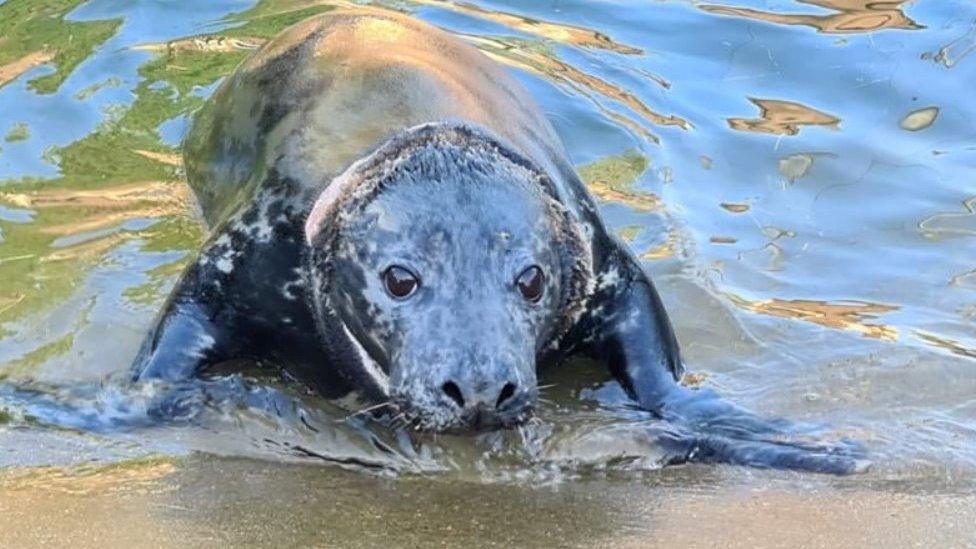
Mrs Vicar is building up her strength in an outdoor pool
Mr Ansell said Mrs Vicar had been given her own outdoor pool which was "about 40ft long".
"They call her to them with fish, then throw it to the other end so she goes after it and that helps to stretch and strengthen her neck," he explained.
An RSPCA spokeswoman said Mrs Vicar's neck was "healing well", although "she'll always have the scar".
She said it was "just a matter of time and logistics" before they could transport her back to the beach and release her.
The centre looks after between 100 and 150 sick and injured seals in an average year, she said.
The charity spends thousands of pounds annually just keeping the mammals in mackerel.
The fish costs them £1,500 per tonne (1,000kg) and Mrs Vicar is now eating a healthy 4.5kg of mackerel each day, the spokeswoman said.
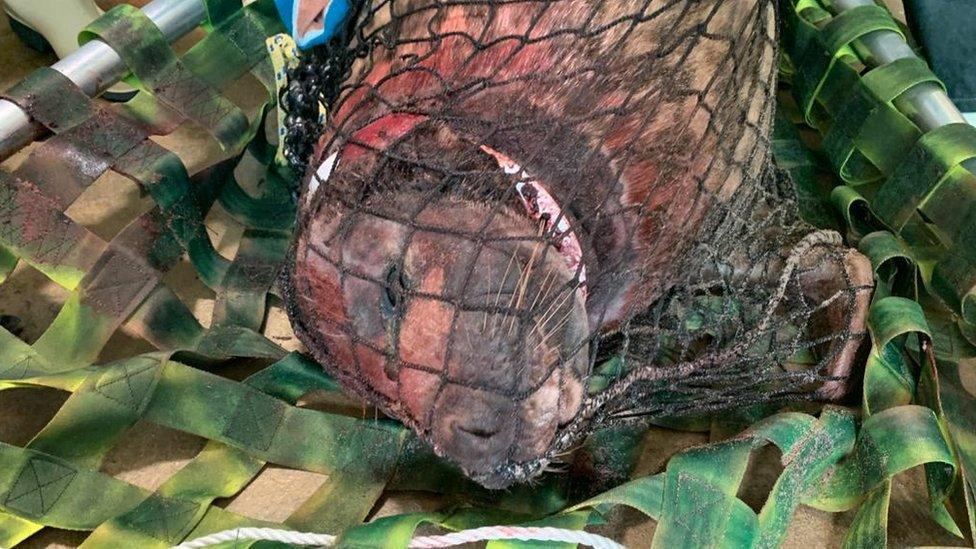
Mrs Vicar was rescued off a Norfolk beach on Easter Sunday

Find BBC News: East of England on Facebook, external, Instagram, external and Twitter, external. If you have a story suggestion email eastofenglandnews@bbc.co.uk, external
Related topics
- Published6 April 2021
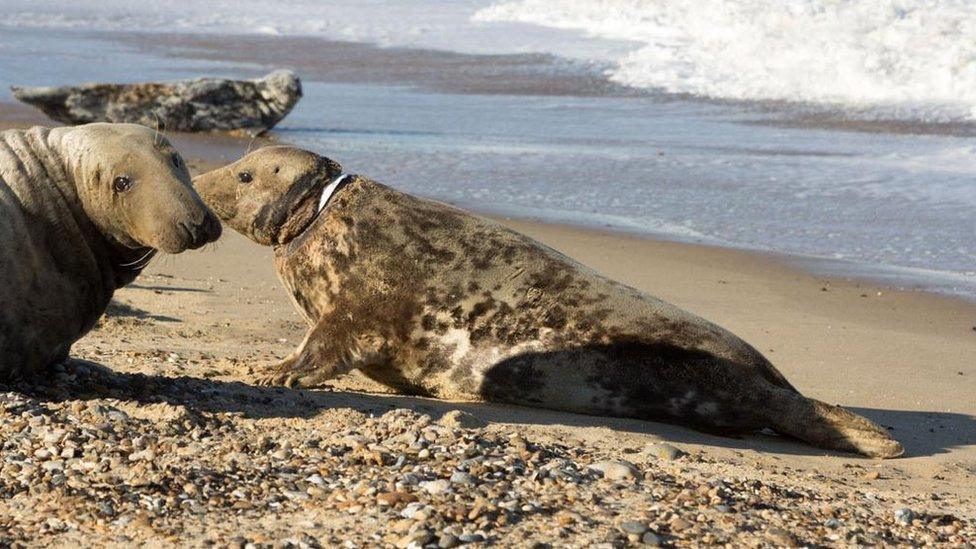
- Published2 April 2021
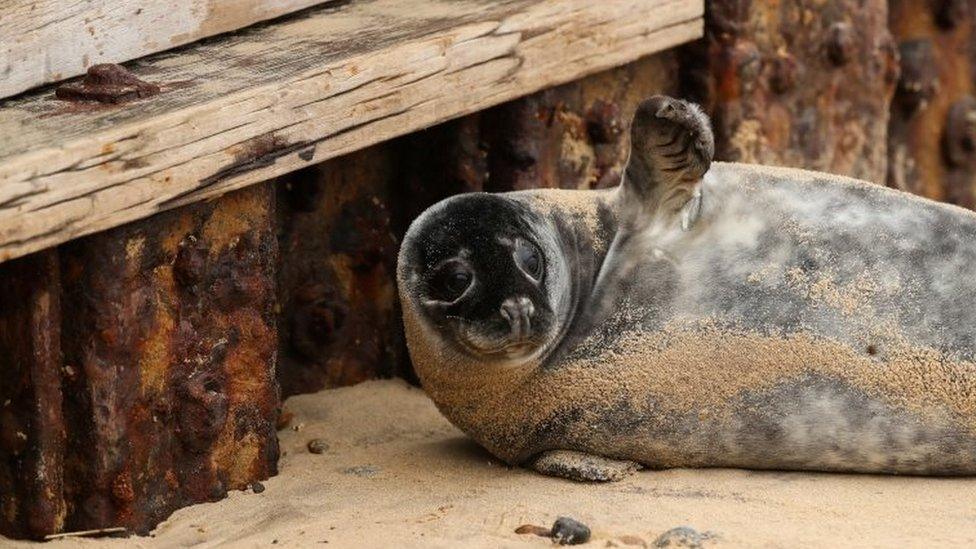
- Published19 January 2021
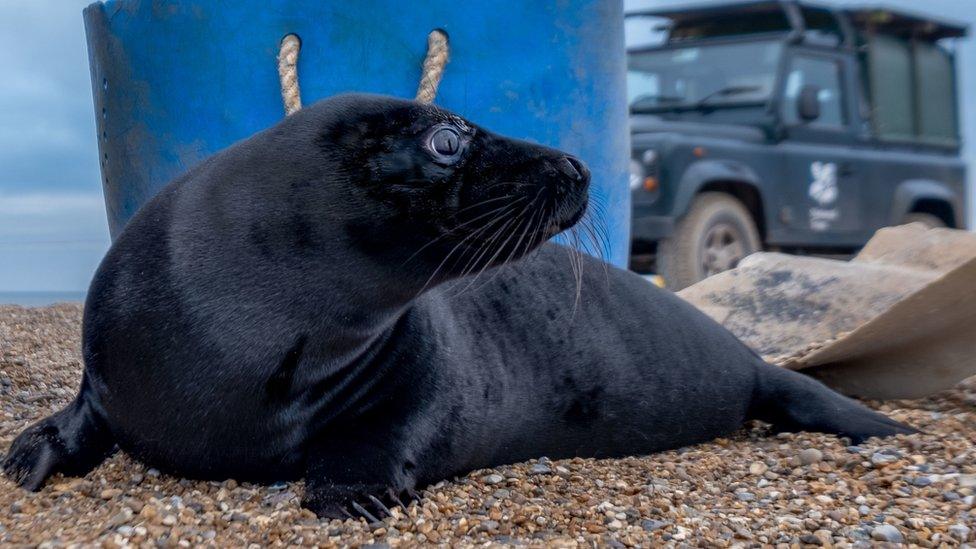
- Published6 November 2020
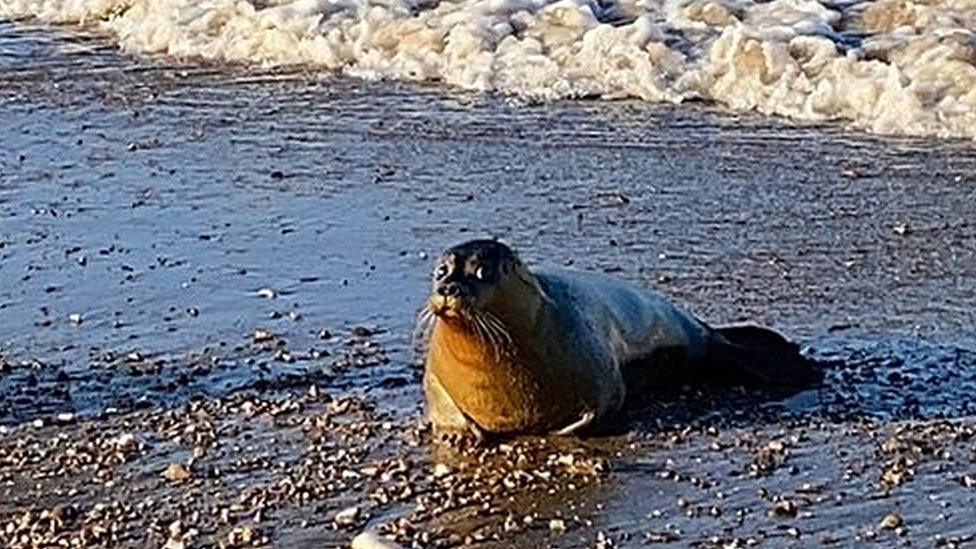
- Published6 January 2019
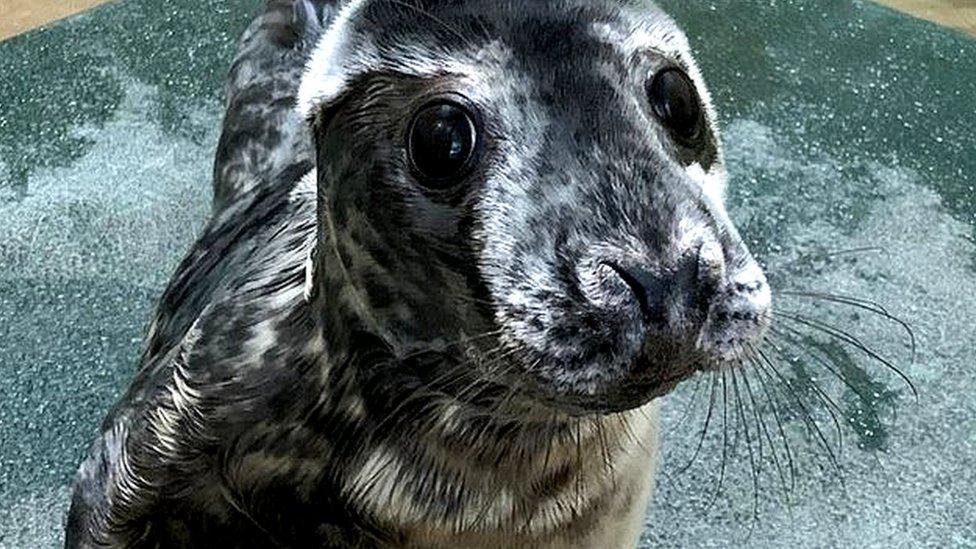
- Published12 November 2013
